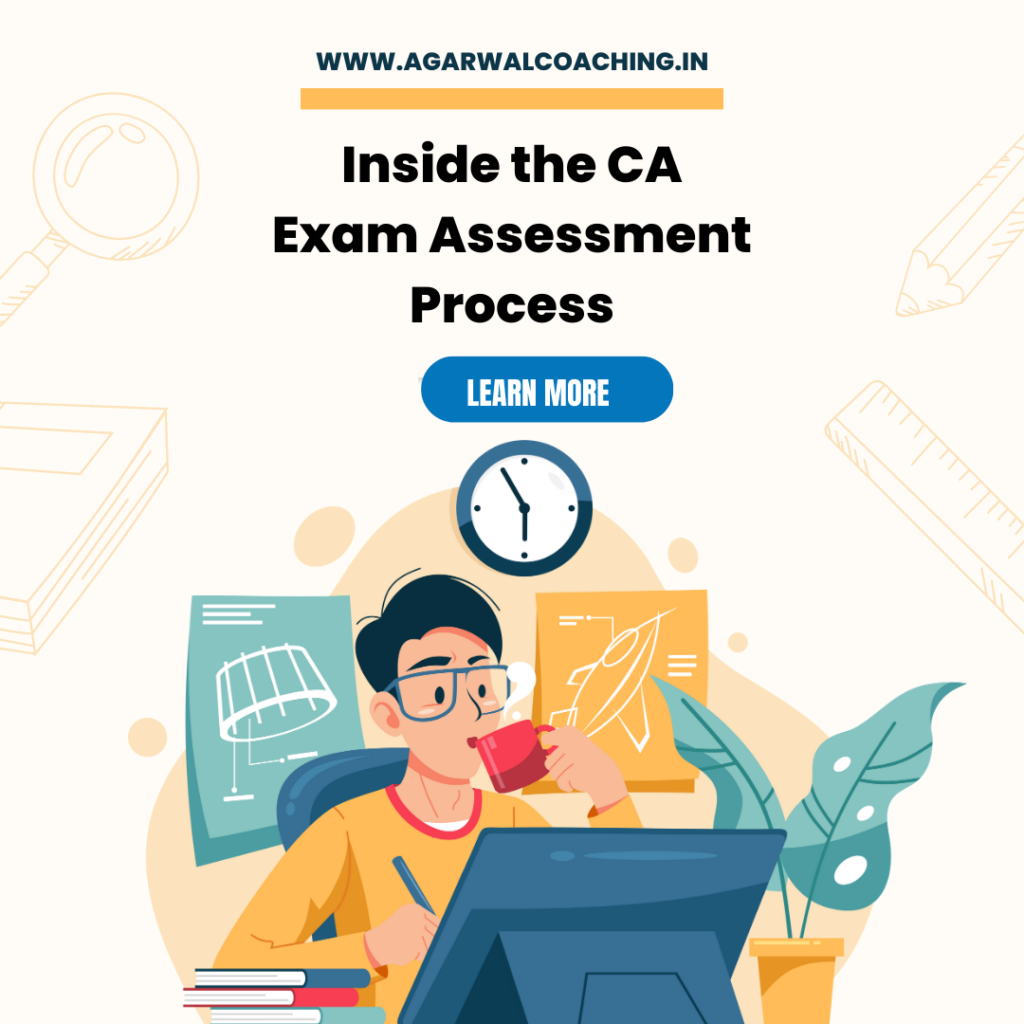
Introduction
The Chartered Accountancy (CA) exams are the ultimate test of knowledge, skill, and dedication for aspiring finance professionals. To ensure fairness and accuracy in grading, the evaluation process for CA exam papers is meticulous and rigorous. In this blog, we will dive into the evaluation process of CA exam papers, shedding light on the procedures, safeguards, and measures taken to maintain the integrity of the assessment system.
1. Secrecy and Anonymity
Maintaining the confidentiality of the evaluation process is of paramount importance. The identity of the candidates is kept anonymous throughout the evaluation process, ensuring impartiality and fairness in grading.
2. Centralized Evaluation
The evaluation of CA exam papers is conducted centrally by a team of experienced and qualified Chartered Accountants appointed by the Institute of Chartered Accountants of India (ICAI). This centralization minimizes regional variations and maintains consistency in grading.
3. Marking Schemes
The ICAI sets detailed marking schemes for each CA exam paper, outlining the distribution of marks for various sections and question types. This ensures uniformity in grading and allows evaluators to adhere to standardized guidelines.
4. Double Valuation
To enhance accuracy and minimize errors, the CA exam papers are subject to double valuation. Two independent evaluators grade the same paper separately, and if there is a significant discrepancy in the marks awarded, a third evaluator is brought in to ensure fair assessment.
5. Moderation
Moderation is a crucial step in the evaluation process. It involves reviewing the results of all candidates to identify any inconsistencies or discrepancies. If necessary, the marks awarded are adjusted to maintain fairness and consistency.
6. Negative Marking
Certain CA exams have a system of negative marking for objective-type questions. This discourages random guessing and encourages candidates to provide well-reasoned responses.
7. Computerized Evaluation
For certain objective-type questions, the evaluation process is computerized, ensuring speedy and accurate grading. This automated system eliminates human error and facilitates quick result processing.
8. Ensuring Quality
The ICAI conducts regular training and workshops for evaluators to maintain the quality of the evaluation process. The evaluators are updated on changes in the syllabus and marking schemes to ensure uniformity in grading.
9. Transparency in Results
The ICAI adopts a transparent approach to publishing exam results. The marks secured by candidates are disclosed in detail, allowing them to identify their strengths and areas for improvement.
Conclusion
The evaluation process of CA exam papers is a meticulous and structured system designed to maintain the integrity and credibility of the qualification. With strict measures in place to ensure anonymity, consistency, and accuracy, the evaluation process adheres to the highest standards of fairness. The double valuation, moderation, and computerized assessment further bolster the reliability of the grading system. Candidates can be assured that their hard work and dedication will be assessed with the utmost scrutiny and objectivity. The CA exams serve as a testament to candidates’ knowledge and skills, and successfully navigating through this rigorous evaluation process is a stepping stone towards a rewarding and fulfilling career as a qualified Chartered Accountant.









